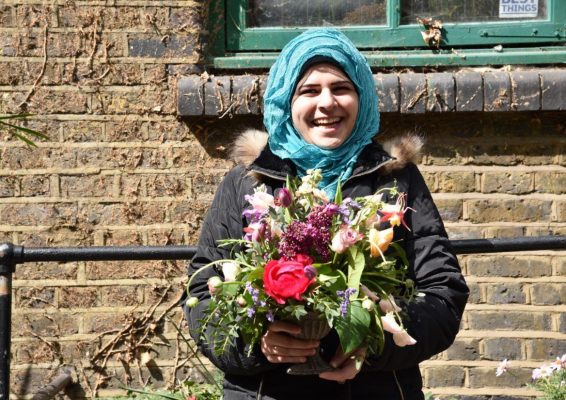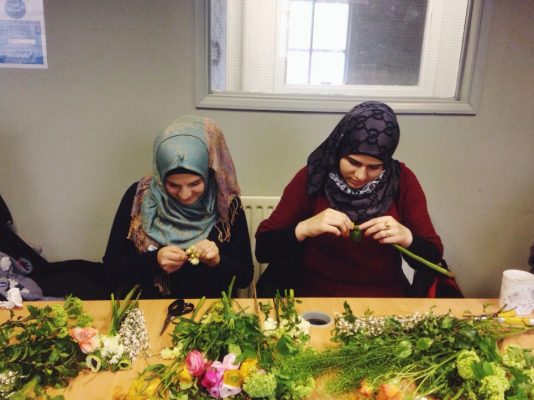By Joanna Zanghi
In the wake of the Syrian refugee crisis, the European Union has struggled to mobilize its political, legal, and economic institutions to support those flooding into its borders. According to the UNHRC, there are currently an estimated 68.5 million people displaced worldwide, and in the UK, there were around 122,000 refugees and 41,000 pending asylum cases at the end of 2017. British social enterprise Bread and Roses works to support economic security and social mobility through workforce development and language training programs targeted towards London’s most vulnerable refugee population – women.
As women make up 50% of all refugees, these women have lost their confidence and become emotionally distressed due their traumatic experience. Refugee women who come to the UK may have skills but otherwise lack English language skills have no other option but to take on traditionally feminine roles such as child care or cleaning, and are in turn hugely undervalued. As a result, refugee women make up 60% of those earning less than the living wage in the UK.
Since the Refugee Integration and Employment Service was disbanded in 2011, services available to refugee women have become less obvious. While there is more awareness of the global refugee crisis, there is still a lack of quality support for refugees in the UK. Because every woman deserves to thrive, Bread and Roses trains refugee women in floristry, and in the process provides them with a space to learn English, develop new skills, and build their confidence.

For example, Carol endured 11 years of domestic violence in Uganda. After running away from her partner, she was not provided protection by the authorities and escaped to the UK seven years ago. Through Bread and Roses, she has learned the English language and floristry skills and hopes to become a professional florist. Since 2016, Bread and Roses has helped over 60 women like Carol on their pathway to secure employment.
Bread and Roses’ founders are Olivia Head and Sneh Jani. Sneh worked as a translator for the UNHCR, which is where her interest in refugee rights began. Olivia worked at a homeless hostel in north London, where she met many unemployed refugees. Additionally, Liv Wilson is the lead florist. Liv is a freelance florist and writer who designed and runs training workshops. With Liv’s talent in teaching, makes the Bread and Rose florist program amazing and inspiring.

Bread and Roses took its name from a political slogan in 1912 by Rose Schneiderman, a pioneering American socialist and feminist. In a famous speech, Schneiderman argued that women working in low-paid jobs need more than just the basics (the bread) to survive – they deserve dignity, respect, and the opportunity to flourish (the roses) too. Bread and Roses has since become symbolic of the struggle of working women to achieve better pay and dignified conditions.


